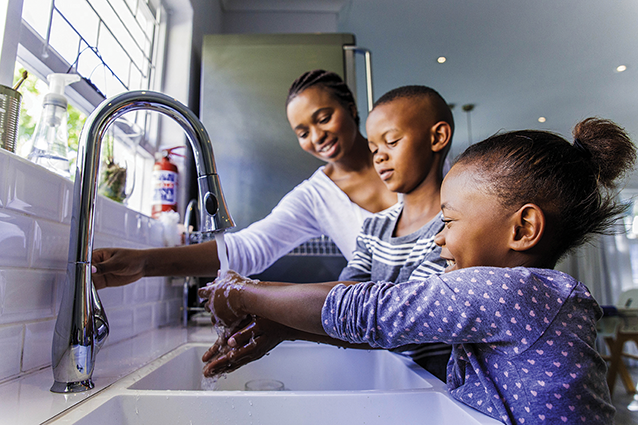The world learned a significant lesson about the importance of personal hygiene during the COVID-19 pandemic. Apart from getting vaccinated, one of the single-best things people could do to prevent the transmission of the virus was to wash their hands thoroughly throughout the day, particularly after touching surfaces at stores, schools and other public places.
The importance of handwashing is one of the earliest hygiene lessons children learn. But it’s not the only important lessons kids should be taught about personal hygiene and how it relates to overall health. Here are the grooming and hygiene lessons that children should learn as they get older and mature.
Washing hands
Regular handwashing reduces the risk that kids will contract and transmit illnesses. Everyone should wash their hands with soap and water for at least 20 seconds, or about how long it takes to sing “Happy Birthday” two times. It is important to wash hands after going to the bathroom; before eating or making food; after sneezing, coughing or blowing one’s nose; after touching pets or other animals; and whenever hands are dirty. Emphasize to children that germs are there even though they cannot be seen.
Bathing/showering
The American Academy of Pediatrics says a baby should be bathed three times a week, but there may be instances when children require more frequent bathing. Over-bathing can dry out the baby’s skin, so parents are urged to keep that in mind.
At some point a child can bathe on his or her own. Parents magazine says some kids are mature enough to bathe on their own at age five or six, but most experts recommend waiting for solo bathing or showering until youngsters reach age eight.
Fresh clothing
Encourage children to pick their own outfits so they are more inclined to choose fresh clothing each day. While it is possible to get away with wearing something for more than one day, soiled clothing and undergarments should be changed daily and children should be encouraged to do so.
Washing hair
Sebum from the skin can build up on the scalp and cause oily, smelly hair. Children should wash their hair once or twice each week and brush it every day, according to Health Direct, an Australia-based health organization. If kids are afraid of getting water in their eyes, suggest they wear swimming goggles while bathing.
Head lice inspection
Head lice is common in children. The Centers for Disease Control and Prevention estimates there are six to 12 million infestations of head lice each year in the United States. Inspecting children’s hair and treating when necessary can help to reduce such infestations.
Using antiperspirant or deodorant
As children get older and their hormones and bodies change, some may develop body odor. Daily showers may be needed for kids who have started puberty. In addition, the daily use of deodorant or antiperspirant can help control odor and sweating.
Oral hygiene
Oral hygiene is another consideration for kids’ health. The American Dental Association says teeth should be brushed and flossed twice a day as part of a daily hygiene routine.
Lessons emphasizing personal hygiene and grooming can keep kids healthy as they grow up.




